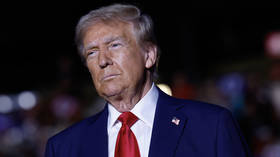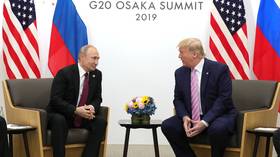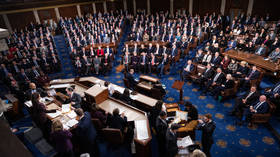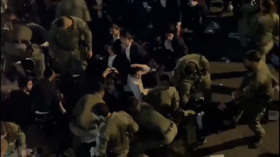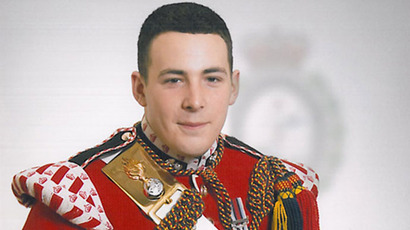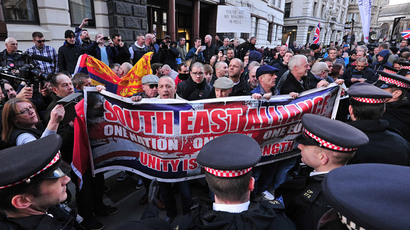'Woolwich murder could not have been prevented'- UK govt committee
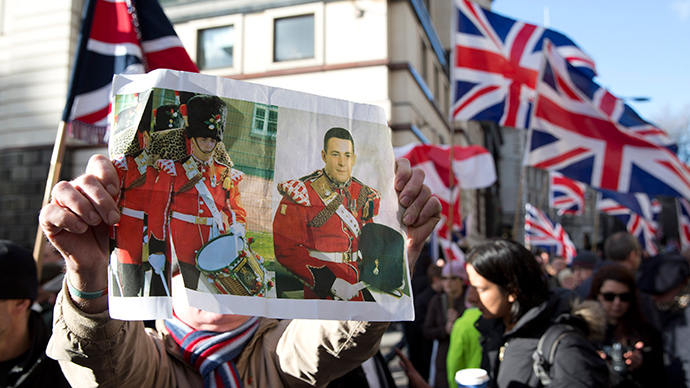
The UK intelligence service MI5 has been criticized for its failure to monitor and reign in the two men who murdered British soldier Lee Rigby in South London in May last year.
In a report published by Parliament’s Intelligence and Security Committee, it was shown that the intelligence services had had Michael Adebolajo , 29, and Michael Adebowale, 23, under surveillance at least seven times since 2008.
Both men targeted and killed Fusilier Rigby on May 22, 2013, near his army barracks in Woolwich.
According to the report, Adebolajo was a ‘high priority’ suspect for MI5, although the intelligence agencies said that there was not enough evidence to suggest that either man was preparing a domestic terror attack.
The investigations into Adebolajo included allegations that he had tried to join an Islamist group in Kenya in 2010.
Michael Adebolajo and Michael Adebowale sentenced to life imprisonment for the murder of Lee Rigby: pic.twitter.com/kqfaaxQAYh
— Roddy Mansfield (@roddymansfield) February 26, 2014
However, the report said that despite intelligence errors in the years leading up to the attack, none were enough to “have made a significant difference.”
"We do not consider that, given what the agencies knew at the time, they were in a position to prevent the murder of Fusilier Lee Rigby," the report added.
While the committee largely saw the attack as “unforeseeable,” it noted that MI5 might have been able to prevent the attack, had it had access to an internet conversation in which Adebolajo had spoke of his intent to murder a British soldier, which allegedly took place in 2012.
— Robin Brant (@robindbrant) November 25, 2014
The conversation only came to light after the attack was carried out.
However, the report does not address allegations made by those close to Adebolajo, that the security services attempted to recruit him following his arrest in Kenya.
“To publish any information in response to allegations that MI5 harassed Adebolajo or tried to recruit him as an agent would damage national security,” the report says, adding that it did not see “any wrongdoing” by MI5 during the investigations.
— Simon Hooper (@simonbhooper) November 25, 2014.A social media company was also blamed by the ISC for failure to alert authorities of potential terror attacks being planned on its platforms.
While the internet company was not named, the ISC said it was a “safe haven for terrorists” to plan and carry out their attacks.
The statements echo those made by new GCHQ head Robert Hannigan,
who in the Financial Times wrote that social media companies were
not doing enough to curb violent extremists planning terrorist
acts online, calling the websites “command and control
networks” for criminals.
Speaking to MPs in Parliament on Tuesday, British Prime Minister
David Cameron said that the murder of Lee Rigby "was a stark reminder of the
threat we face from homegrown terrorists and extremists plotting
to murder our people".
"This is a very serious report
and significant areas of concern in it. Lessons to be learned and
things that need to change" he added.
The Prime Minister also unveiled a £130m plan that would allow
the security services monitor those suspected of terror related
activities more carefully, including greater access to their
online activity.
Earlier this week, UK Home Secretary Theresa May also attempted to resuscitate plans that would force internet service providers (ISPs) to provide details of individual users to the police if requested.
Nicknamed the “Snoopers’ Charter”, the controversial policy was designed to “make it easier” to find and prosecute those involved in terrorism, or other cyber crimes. However, a number of civil liberties groups have argued that the policy will give authorities unprecedented powers to spy on individual citizens, regardless of their political or religious affiliations.


